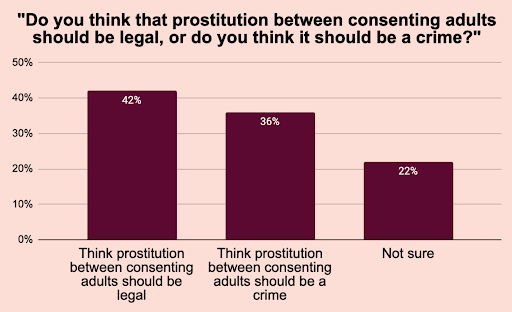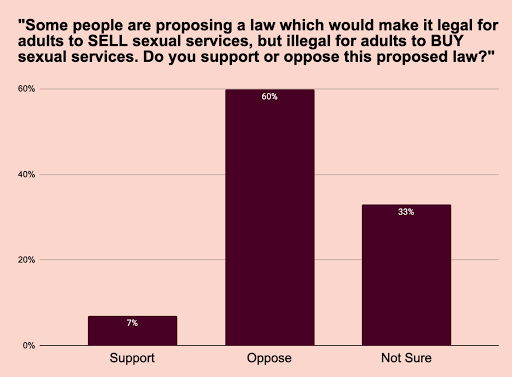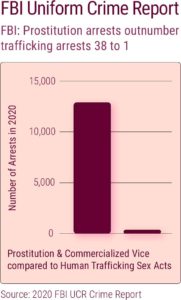NEWS RELEASE | FOR IMMEDIATE RELEASE | PDF
Media Contact:
Ariela Moscowitz, director of communications
[email protected] | (212) 368-7874
Burlington, VT (December 12, 2021) — The Burlington City Council will vote on whether to adopt recommended changes to archaic, dangerous, and discriminatory language in the Burlington City Charter. The formal process to amend the charter mandate to “restrain and suppress houses of ill fame and disorderly houses, and to punish common prostitutes and persons consorting therewith,” was triggered by a resolution by City Councilor Perri Freeman, P-Central, which was unanimously approved in June 2021. The City Council Charter Committee then voted in favor of bringing the amendments to the full Council. On December 13, 2021, City Councilors will determine if the measure should head to the March ballot, giving voters the opportunity to make a change that would support human rights and dignity.
Vermonters who engage in consensual adult sex work and individuals who have experienced trafficking are urging City Councilors to allow residents to vote on the issue. “We have been criminalized and marginalized for too long,” said Henri Bynx, co-founder of The Ishtar Collective, Vermont’s only organization run by and for sex workers and survivors of trafficking, “We’re asking our neighbors to recognize us as deserving of dignity and bodily autonomy. This charter change would be a step in the right direction towards improving the health and safety of individuals who engage in sex work consensually and those who are trafficked into it,” Bynx continued.
The charter amendment would not decriminalize prostitution, as it remains illegal at the state level. In May 2021, Gov. Phil Scott approved legislation that provides limited criminal immunity to people who report a crime committed against them, or which they witnessed, while voluntarily involved in sex work or while a victim of human trafficking. “This [law] means that a pimp or an abuser could no longer threaten arrest to exploit a sex worker or survivor of trafficking, which is a common tactic of exploitation. It shows lawmakers care about us as people. They are taking action to protect our safety by giving us equal protection under the law,” said Bynx.
Sex work is not inherently dangerous or exploitative but criminalization puts sex workers at risk and creates conditions that allow for trafficking to proliferate. “Permitting sex workers to come forward to report being the victim of or witness to a crime without fear of arrest is critical but I’m looking forward to the day when we will no longer be as vulnerable to crime or exploitation as we are now. That day will come when consensual adult sex work is decriminalized,” said J. Leigh Oshiro-Brantly, co-founder of The Ishtar Collective and research and project manager at Decriminalize Sex Work.
###
Decriminalize Sex Work (DSW) is a national organization pursuing a state-by-state strategy to end the prohibition of consensual adult prostitution in the United States. DSW works with local organizations, advocates, and lobbyists to build community support and convince legislators to stop prostitution-related arrests. Evidence shows that decriminalizing sex work will help end human trafficking, improve public health, and promote community safety.




